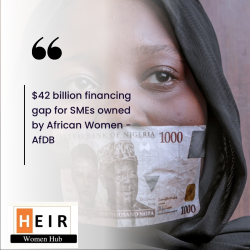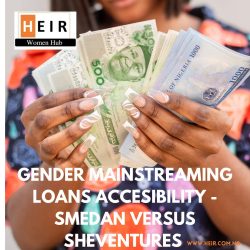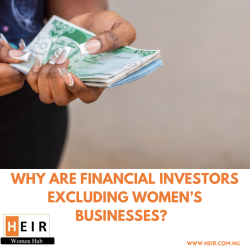Economic Injustice – What does the Financial Ecosystem hold for Women-led Businesses in Nigeria?
The African Development Bank Group notes a $42 billion financing gap for small and medium-sized enterprises owned by African women, posing a significant obstacle to economic development and overall wellbeing. Efforts by Tony Elumelu Foundation, Bank of Industry (BOI), W Initiative by Access Bank, having over 10 banks run by women, women taking ownership and creating ventures that fund women owned business,[…]



